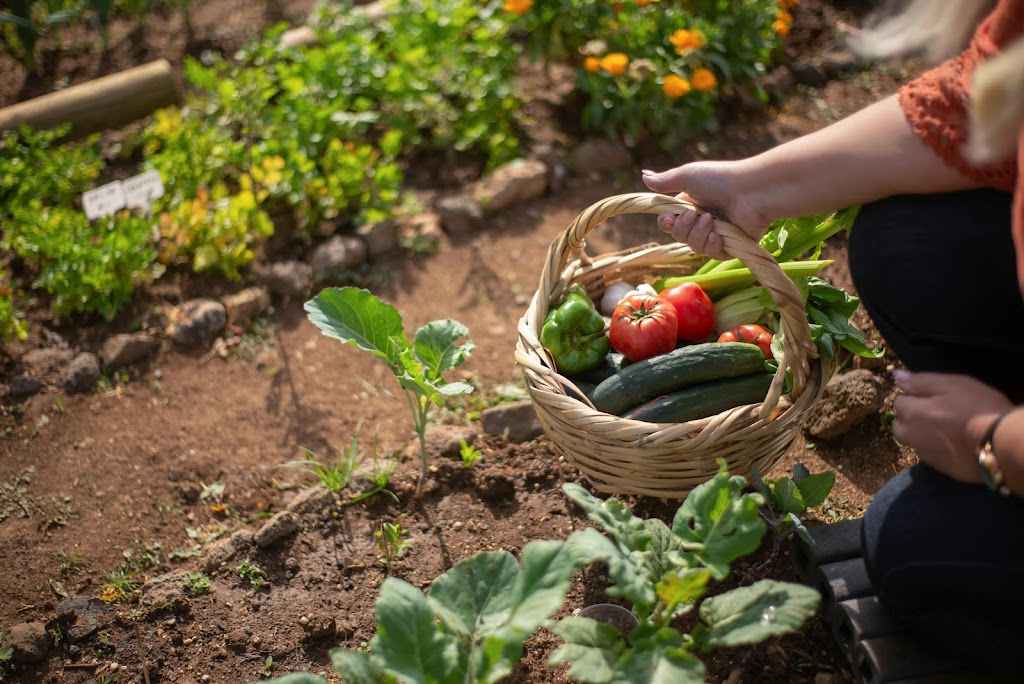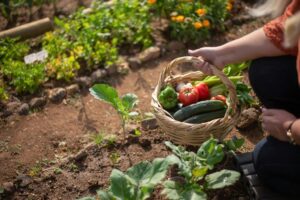Organic Farming: An Eco-Friendly Best Method of Agriculture
| Organic Farming by Think Me Wise |
As customers give sustainability, environmental preservation, and health more importance, organic farming has become rather popular recently. While conventional farming often employs synthetic fertilisers, pesticides, and genetically modified organisms, organic farming stresses more biodiversity, sustainability, and natural processes. Emphasising Sikkim, India, a leader in the manufacturing of organic seeds, this blog post will discuss the methods, benefits, and possible future direction of organic farming.
What is Organic cultivation?
A whole agricultural approach supporting ecological balance and biodiversity is organic farming and cultivation. It means cultivating food free of synthetic fertilisers, herbicides, or insecticides. Organic farmers instead employ natural replacements include biological pest control, compost, green manure, and crop rotation. This approach improves the quality of the soil and promotes a varied environment that helps animals and plants alike.
Key Principles of Organic Farming
1. Soil Health: Organic farming prioritizes soil health. To provide organic matter and nutrients to the soil, farmers rotate crops, cover crops, and compost. Better plants from healthy soil translate into improved crop yields.
2. Biodiversity: By producing a range of crops and plants, organic farming fosters biodiversity. This variety strengthens an ecosystem and reduces the susceptibility of crops to diseases and pests.
3. Natural Inputs: Organic producers substitute natural inputs for manufactured ones. To control pests and diseases, this covers naturally occurring insecticides, organic fertilizers—like manure—as well as crop rotation.
4. Integrated Pest Management (IPM): Many organic growers use integrated pest control (IPM) techniques. This method reduces pest populations by including organic pesticides, traps, and natural predators, so minimizing
damage to crops.
5. Sustainability: Natural farming methods are meant to be long-standing. Their main goals are to preserve environmental health and balance for next generations.
The Rising Demand for Organic Crops
Consumer knowledge and taste for safer and better food choices have fuelled the increasing demand for organic products. Not only urban people are starting to see the advantages of organic farming; even rural areas are starting to acknowledge this. Offering farmers a profitable substitute for traditional farming, organic crops can demand more on the market.
Health Benefits
Organic produce is thought to be better than conventionally cultivated equivalents. Studies indicate that organic food reduces exposure to dangerous chemicals and pesticides while yet including more antioxidants and other minerals. Retailers are increasing their offers as health-conscious shoppers search for organic items, therefore stimulating demand.

Environmental Impact
The environment suffers less harmful effects from organic farming than from conventional one. Organic farming reduces soil and water pollution, supports biodiversity, and aids in the slow down of climate change by excluding synthetic chemicals. Lessening of chemical discharge into rivers helps to create better ecosystems and lowers the likelihood of algal blooms and aquatic dead zones.
Sikkim: The Leader in Organic Seed Production
Small state of Sikkim in northeastern India has made amazing progress in organic farming and is ready to set an example for organic seed manufacture globally. Sikkim became the first totally organic state in India in 2003; today it is still a shining example of sustainable development. Here’s how Sikkim is leading the way
A Policy Commitment
The Sikkim state government has been relentless in its support of organic farming. Sikkim has developed an atmosphere that supports the expansion of organic agriculture by means of legislation meant to encourage sustainable practices and ease organic certification for farmers. With almost 75,000 hectares of land turned to organic farming, this dedication has resulted in a notable change in farming techniques.
Quality Seed Production
Sikkim is as concerned with the creation of premium organic seeds as with organic farming methods. Sikkim farmers are maintaining biodiversity by growing native and heirloom varieties, therefore guaranteeing that their crops are fit for the particular environment. This emphasis on seed quality is absolutely vital since it helps the agricultural ecosystem to be resilient and forms the basis of good crops.
Education and Awareness
Local non-governmental organisations as well as the government have actively taught farmers about the advantages and methods of organic farming. Launched are several training courses, seminars, and awareness initiatives that equip farmers with the information and tools required to effectively move to organic practices. Stronger and better informed farming community is the outcome of our educational endeavour.
Economic Impact
Sikkim has experienced economic growth as demand for organic goods both locally and abroad rises. Many farmers now make their living from organic farming; the state’s dedication to these methods has drawn visitors interested in agricultural tourism. Sikkim is now somewhat well-known in the organic farming industry thanks to this economic diversity.
Challenges and Future Outlook
Although organic farming https://amzn.to/40GBlq3 has many advantages, it also brings certain difficulties. Changing from conventional to organic farming calls for time, commitment, and major farming methodologies. Farmers can have first yield declines during the changeover phase, financial strains, and possible changes in the market.
Furthermore guaranteeing sustainable seed production calls for constant technological innovation, financial support for farmers, and continuous research. However, the growing consumer demand for organic products presents an enormous opportunity for farmers to capitalize on sustainable practices, enhancing their livelihoods while contributing to a healthier planet.
Conclusion
Benefits to farmers, customers, and the environment equally come from organic farming—a sustainable, health-conscious method of farming. Farmers who adopt these methods can profit from a strong market and better pricing as demand for organic goods grows. Inspired by Sikkim, which shows how dedication at the governmental level, educational outreach, and a focus on quality can propel the natural farming movement ahead, Through policy support, development, the other Indian states—Himachal Pradesh, Uttarakhand, Maharashtra, Karnataka, Kerala, Madhya Pradesh, Rajasthan, Tamil Nadu, and Assam—are increasing the organic farming of infrastructure and market access initiatives. Understanding and supporting organic farming will help us to create a time where farming coexists peacefully with the surroundings.
Organic farming presents a road that not only feeds the present but also protects the environment for next generations as the world moves towards sustainable practices. Let’s all welcome and assist these methods for a better earth.
Suggestions for Readers:
- A Handbook of Organic Farming (PB)-https://amzn.to/40GBlq3
- The Complete Book on Organic Farming and Production of Organic Compost-https://amzn.to/3O1rpzZ











